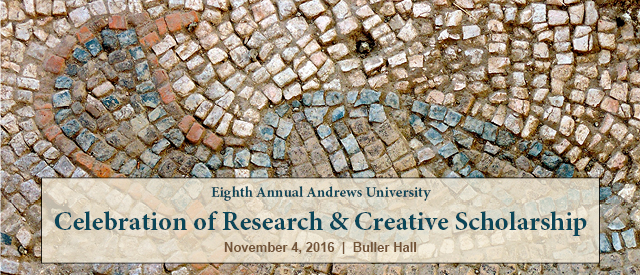P-08 Discoveries of a Paleo-Christian Community in Sicily: Moving from Paganism to Christianity at San Miceli
Presenter Status
Professor, Archaeology and History of Antiquity
Preferred Session
Poster Session
Start Date
4-11-2016 2:00 PM
End Date
4-11-2016 3:00 PM
Presentation Abstract
The Institute of Archaeology at Andrews University has been excavating a Paleo-Christian site in western Sicily (Trapani Provence) at San Miceli, near the town of Salemi since 2013. The project has been uncovering a Roman village that was settled some 300 years BC and continued to be occupied through until it was destroyed--probably by a Muslim raid--in the mid-7th century AD. Its occupation thus includes the period of the shift from paganism to Christianity. The excavations have uncovered what is arguably the first Christian basilica in Sicily that was rebuilt some three times between the 4th and 7th centuries. The remains included three phases of mosiac floors in the church along with numerous tombs, many of which indicate the relative wealth of the community, evident in the gold and silver jewelry found in the tombs. Women also seemed to play a prominent role in the church community. A large "villa' was found south of the church, also pointing to wealthy and important citizens living in the town. The poster will illustrate the work and finds of our excavations at San Miceli, 2013-2016.
P-08 Discoveries of a Paleo-Christian Community in Sicily: Moving from Paganism to Christianity at San Miceli
The Institute of Archaeology at Andrews University has been excavating a Paleo-Christian site in western Sicily (Trapani Provence) at San Miceli, near the town of Salemi since 2013. The project has been uncovering a Roman village that was settled some 300 years BC and continued to be occupied through until it was destroyed--probably by a Muslim raid--in the mid-7th century AD. Its occupation thus includes the period of the shift from paganism to Christianity. The excavations have uncovered what is arguably the first Christian basilica in Sicily that was rebuilt some three times between the 4th and 7th centuries. The remains included three phases of mosiac floors in the church along with numerous tombs, many of which indicate the relative wealth of the community, evident in the gold and silver jewelry found in the tombs. Women also seemed to play a prominent role in the church community. A large "villa' was found south of the church, also pointing to wealthy and important citizens living in the town. The poster will illustrate the work and finds of our excavations at San Miceli, 2013-2016.



